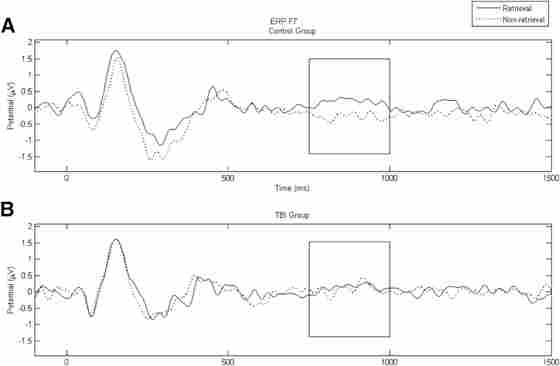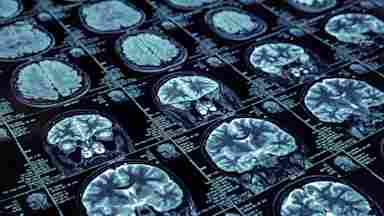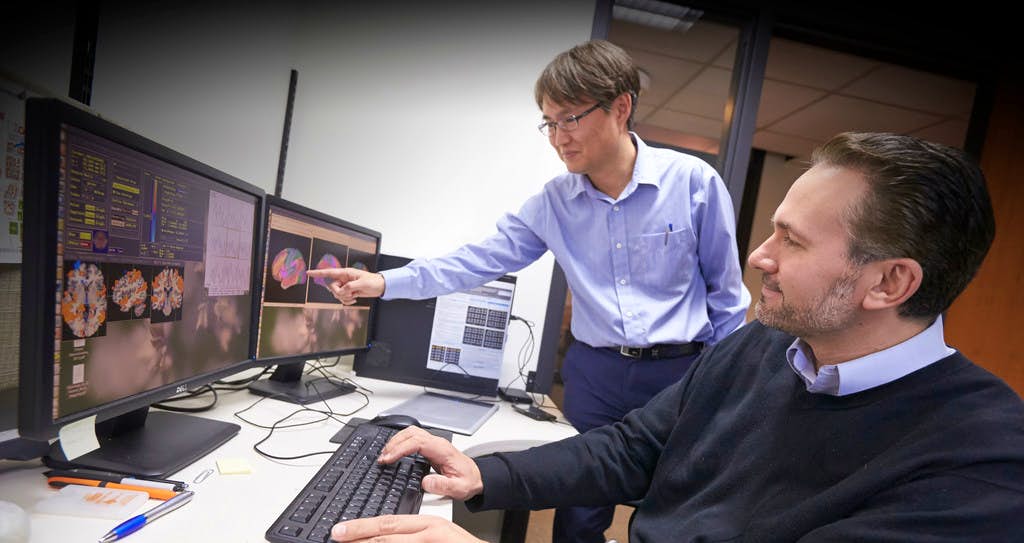Overview
People who suffer from traumatic brain injury (TBI) often complain of difficulties remembering words long after their injury has occurred. This electroencephalogram (EEG) study measured brain signals in two groups, healthy controls and athletes with TBI, when looking at words that facilitated retrieval of an object name and words that did not. While healthy controls showed difference in signaling, the TBI group did not. Findings from this study show that measuring these brain signals can be used as a marker of abnormalities in the semantic retrieval networks of people with TBI.
Figure 1. Group evoke-related potential (ERP) amplitudes (μV) at electrode F7 during the Semantic Object Retrieval Test task. Data for the retrieval condition are shown in black; data for the non-retrieval condition are shown by a dashed line. There was a significant difference (750–1000 msec) between conditions for the control group (A) but not the traumatic brain injury (TBI) group (B).


